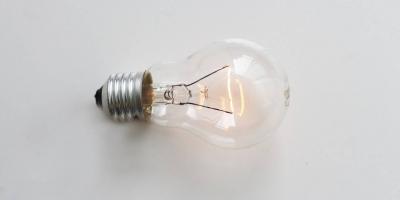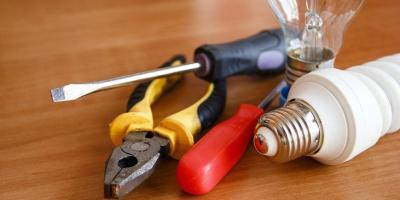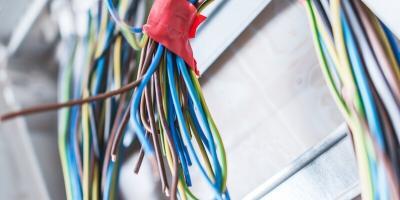There are more benefits to an energy-efficient home than saving money
The benefits of having an energy efficient home are endless. Being energy efficient is not just about saving costs, it is something that impacts on nearly every aspect of your wellbeing in one way or another.
Global warming is arguably the greatest challenge faced by humanity. The emission of greenhouse gases from fossil fuel continues to increase despite the attempts to limit them through energy efficient and other mitigation measures. Every household clearly has a role to play for us to achieve significant reductions in greenhouse emissions necessary to limit global warming.
According to Australia’s Sector of Energy and Environment, Australian households are responsible for at least 20% of Australia’s total greenhouse emissions. What’s more, the average household energy consumption generates more than seven tonnes of greenhouse gas from its premises. Other than the need to combat global warming, there are other benefits you’ll enjoy by having an energy efficient home:
• Improved indoor comfort
• Reduced monthly energy bills
• Improved air quality and overall health
• Increased home resale value
• Happiness
What are some of the best ways to make your home more energy efficient?
All experts agree that the best strategy for enhancing your home’s energy efficiency is to first examine the design and structure of your house. This includes things like your windows, the attic, walls and the doors. After that, you can now focus on improving the energy efficiency of appliances that consume energy in your house. Check out below for the best strategy for improving the energy efficiency of your home.
1) Insulate your attic and walls appropriately.
When you think about energy-efficiency in your house, your attic is probably the last place you’ll consider. But it is arguably the most significant source of energy loss in many homes. To prevent energy loss in your attic, you’ll concentrate on two main areas including ventilation and insulation.
During the cold season, a poorly insulated attic causes more heat loss than any other place in your home. Consequently, during the hot season, a lack of ventilation in your attic will cause excess heat and moisture to collect which in turn results in increased energy costs and reduced insulation lifespan.
When properly installed, insulation and ventilation both serve the same purpose; keeping your attic at optimum temperature, a phenomenon that significantly lowers your energy consumption and bills.
2) Replace or upgrade damaged windows.
Did you know that old, leaky windows can potentially increase your monthly energy costs? Inefficient windows usually let in heat during the summer and cold air during the winter and this can be a very costly business. Go the extra mile by replacing old windows and sealing all the air leaks around the windows in your house. Enhance the efficiency by installing either window films or double glazing windows.
3) Always unplug all unused chargers.
Research has proven that battery and cell phone chargers which are plugged in but not in use account for up to 10% of your home’s total energy consumption. A single charger uses approximately 0.26 watts of power when not in use. Apparently, a single charger may not cause much damage, but collectively these devices can cause havoc in as much as your monthly energy bills are concerned.
4) Install solar panels.
Harnessing the sun’s natural energy can be one of the best options for those seeking both clean and affordable energy source. While the initial investment may seem relatively higher, the urge to reduce your monthly energy expenses make the installation of solar panels an attractive option. Solar power not only help you to save money on energy bills long-term, but also discourages the use of fossil fuel thus reducing your carbon footprint.
5) Invest your money on Energy Star appliances.
Energy Star is an international voluntary labelling scheme which indicates how energy efficient the product is. On average, household appliances and equipment account for nearly a third of household energy use. Common appliances that consume lots of energy are refrigerators, washing machines, dishwashers, dryers and perhaps television. Energy Star-rated appliances use between 10 to 50% less energy than standard devices. The more stars, the more efficient the appliance.
6) Check your hot water service.
Heating water accounts for at least 20% of the total energy used in an average Australian home.
This implies that reducing hot water usage and using renewable energy sources to heat your water are two effective ways to reduce your monthly energy bills. Equally, you can adopt other modern, energy-saving techniques such as insulating your hot water lines so they don’t cool off immediately between uses. You can also set your water heater’s temperature to the warm setting. Finally, install low-flow showerhead on your faucets and showers.
7) Repair/replace your air-conditioner.
A poorly-maintained air conditioner can significantly increase your monthly energy bills. Always ensure your HVAC unit is in good working condition. An annual check-up will ensure that your furnace and air-conditioner are running at peak efficiency and this will potentially save you money. You are also highly encouraged to invest in a programmable thermostat. You can save an average of $200 annually in energy costs due to this thermostat which allows you to set different optimal temperatures throughout the day seamlessly.
If you are seeking assistance to make your home more energy efficient, simply ask us at Gordon’s Powers. We are experts in all things electricity. We’ll be able to help you with any of the previously mentioned tips. In times of electrical emergency, we can send our 24-hour emergency electrician to attend your site. There is no electrical job that our qualified level 2 electricians can’t do.










